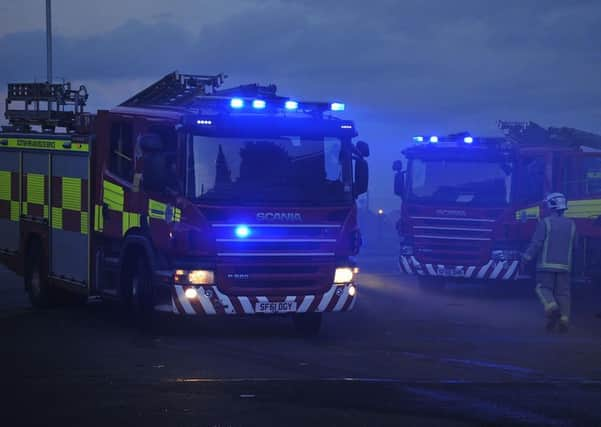Firefighters deal with 1100 calls and 500 bonfires on November 5


Initial figures indicate that Scottish Fire and Rescue Service (SFRS) crews responded to 511 bonfires across the country between 3.30pm and 11.30pm on Thursday, November 5.
Meanwhile Operations Control handled more than 1100 calls from members of the public.
Advertisement
Hide AdAdvertisement
Hide AdThere were also 12 reported attacks on crews, although no injuries have been reported.
With public events cancelled amid continuing Covid-19 restrictions, the SFRS had appealed to the public to be aware of the dangers of both fireworks and deliberate fire-setting and to also consider the impact of their actions on communities and emergency services.
Assistant Chief Officer Stuart Stevens is the SFRS Director of Service Delivery.
He said: “Bonfire Night is traditionally one of our busiest night of the year. Our frontline crews and Operations Control personnel and support staff have shown extreme dedication over this period and I would like to pay tribute to their professionalism and resilience.
Advertisement
Hide AdAdvertisement
Hide Ad“I must also thank our partners and indeed communities across Scotland for their continuing support.”
Libby Logan is the SFRS Area Commander for Operations Control.
She said: “This was a busy and challenging evening, but I would like to praise our Operations Control staff who have once again worked tirelessly to ensure we respond to those who need us the most.
“Their dedication has allowed us to meet this challenge and continue to protect communities throughout Bonfire Night.”
Advertisement
Hide AdAdvertisement
Hide AdCondemning attacks on emergency service workers, Assistant Chief Officer Stevens added: “Attacks on emergency service workers are completely unacceptable.
“This type of behaviour not only prevents our crews from bringing any emergency to a safe and swift conclusion, but it can impact on our emergency service colleagues including the police when they must escort us at the scene.
“This type of behaviour is, of course, carried out by a very small minority and we once again thank our communities for their continuing support and working together with us to stay safe.”
Comment Guidelines
National World encourages reader discussion on our stories. User feedback, insights and back-and-forth exchanges add a rich layer of context to reporting. Please review our Community Guidelines before commenting.